The water churned along the walkway of the GulfQuest/National Maritime Museum of the Gulf of Mexico next to the Mobile River in Mobile, Alabama. Pockets along the river were filled with branches, leaves, and brackish detritus that pooled next to sea vessels that had been docked for what looked like more than a year.
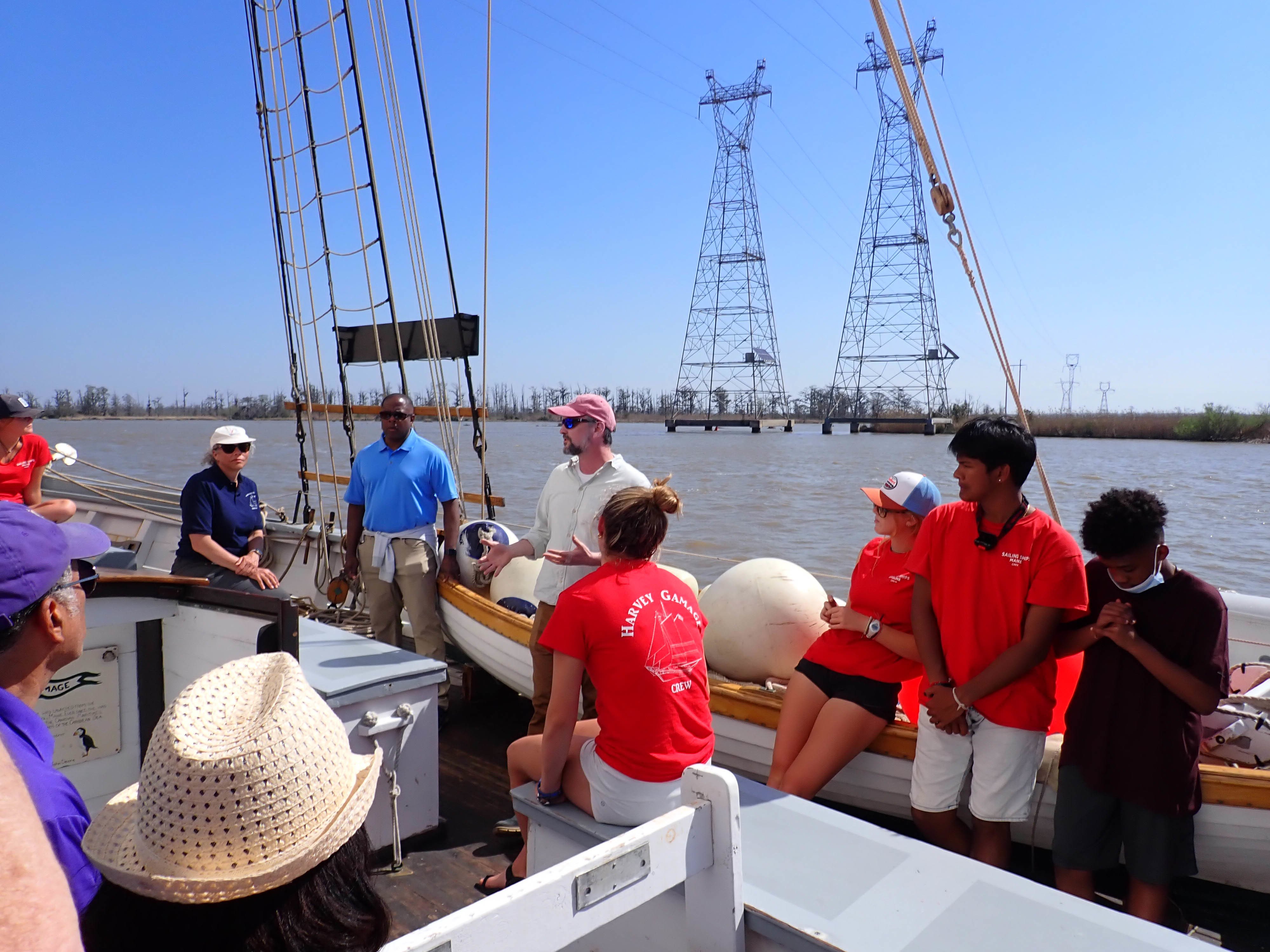
Where Brooks Bicknell and I stood, we waited for our ship to come ashore. Our eyes were not able to see through the docked ship that obstructed our vision, but we waited for the Harvey Gamage and our students to emerge to our right. The Carnival Cruise ship stood in our way. It looked like it hadn’t left port in many months–maybe even years. Teams of people, including the police and homeland security, appeared to be making ready for the cruise ship to leave soon.
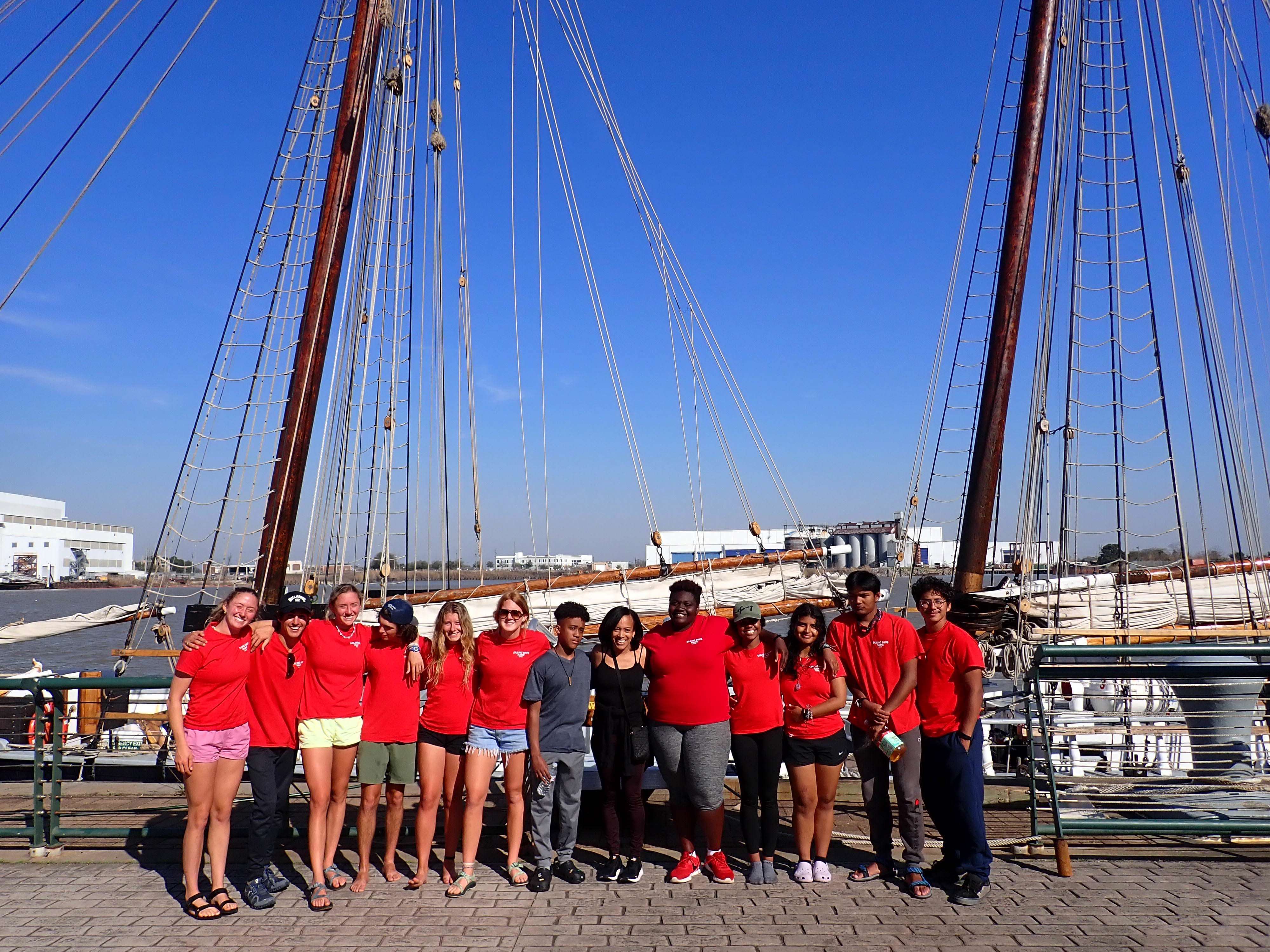
After a very short wait, the Harvey Gamage made its way past the massive cruise ship, looking for a safe and convenient place to dock. Modern technology that tracked the ship’s GPS was still a marvel. Also a marvel were the team of people who loaned the dock and the gangplank that would be used to make entering and exiting the boat a breeze.
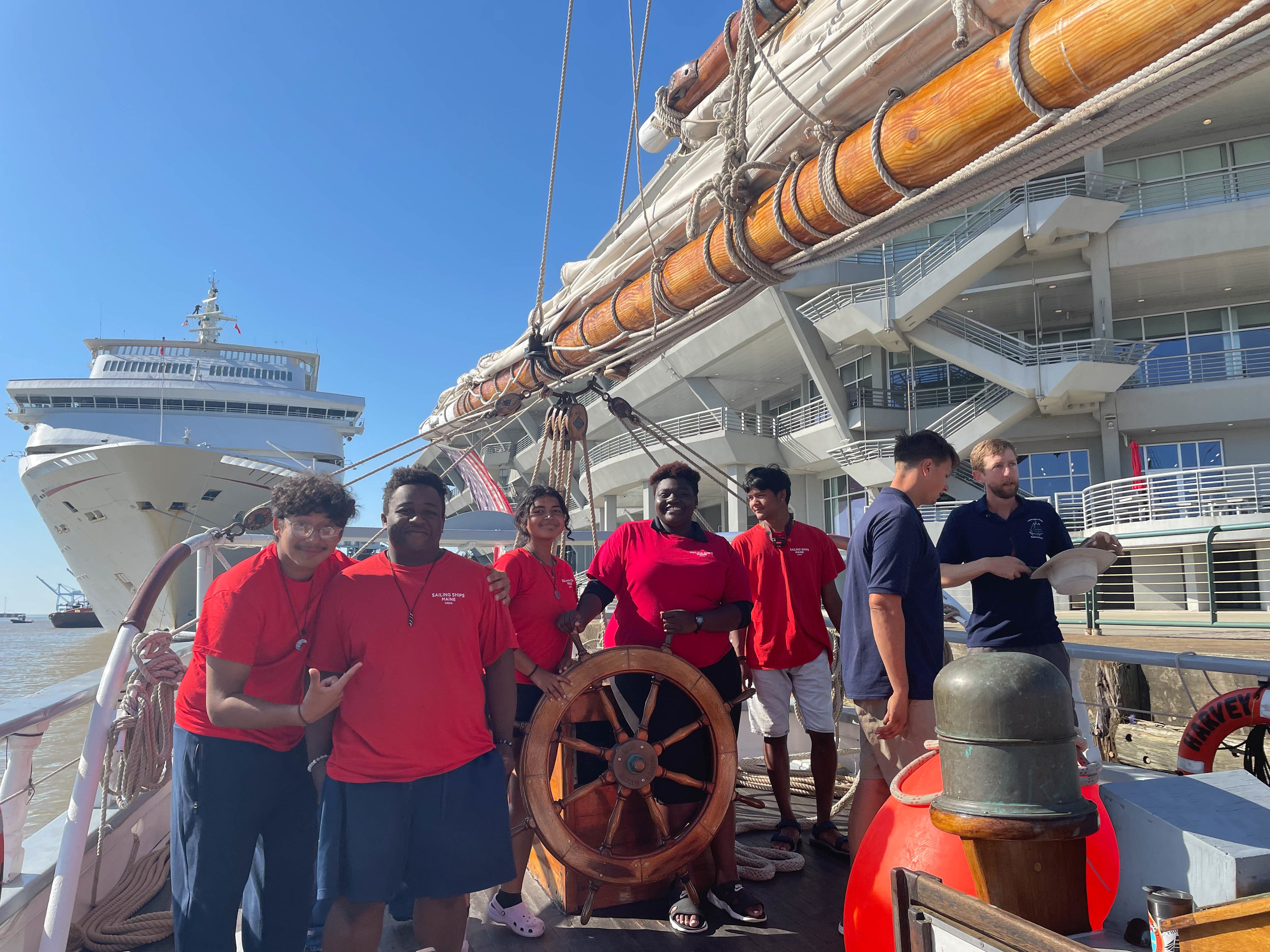
The stark contrast of the tall ship and its behemoth of a sister ship seemed to be discordant in our view, quite literally. How in the world did one ship – with mast and sails lead to the other – over time? In fact, the advent of slavery itself and maritime history would not have been possible if it were not for four-hundred years of the sailing industry that happened before the founding of the Republic until the end of the Civil War.
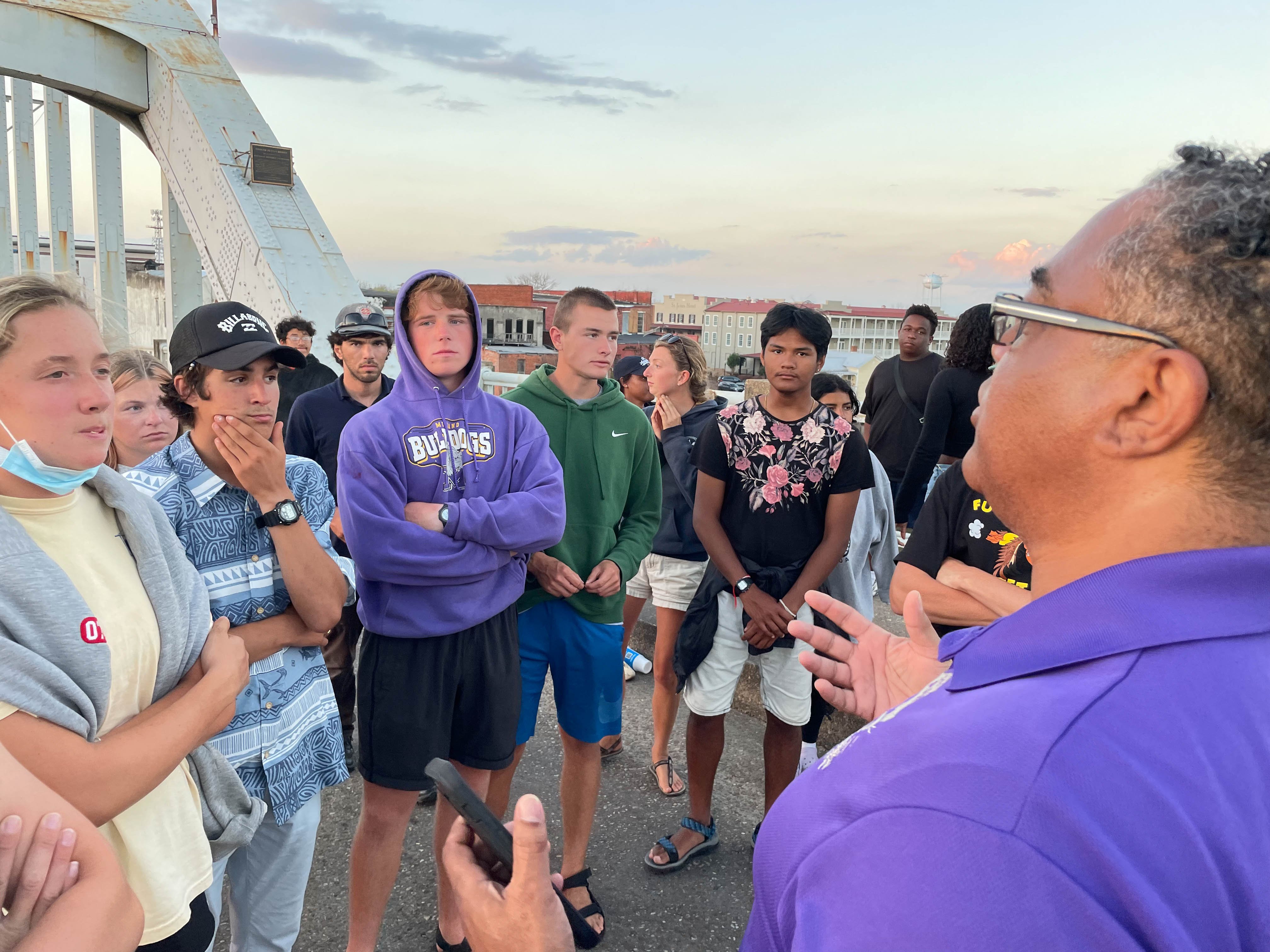
Meanwhile, back on the Gamage, things appeared to be bustling as well with calls being made to a smaller two-person boat launched from the deck of the Gamage to find the appropriate place for the bigger boat to dock next to the GulfQuest Museum and the Carnival Cruise ship. The Harvey Gamage would have to fit into a small space less than 100 yards from the Carnival ship, which must have made Homeland Security a bit nervous. A television camera crew also were pointing towards our boat as it expertly maneuvered with a crew of experts and twenty trainees. Our trainees became one; they were no longer members of two schools–the MET from Providence, RI and Proctor Academy.
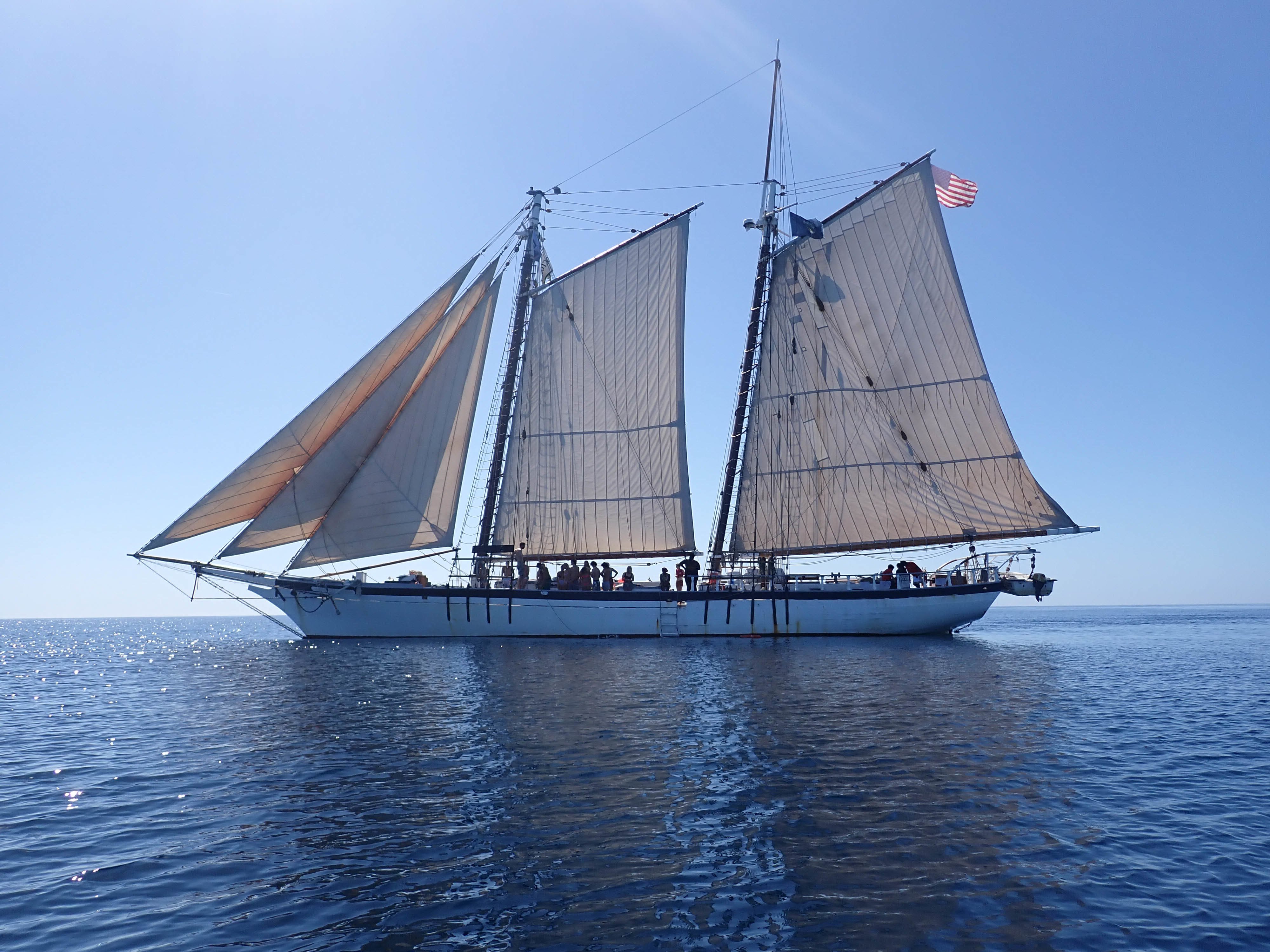
Every passerby on shore remarked that they would take her – the Harvey Gamage – over the sailing city of the sea that was the cruise ship any day. The sixty-five day voyage of the Gamage came to an end with fanfare but still more of the journey to go.
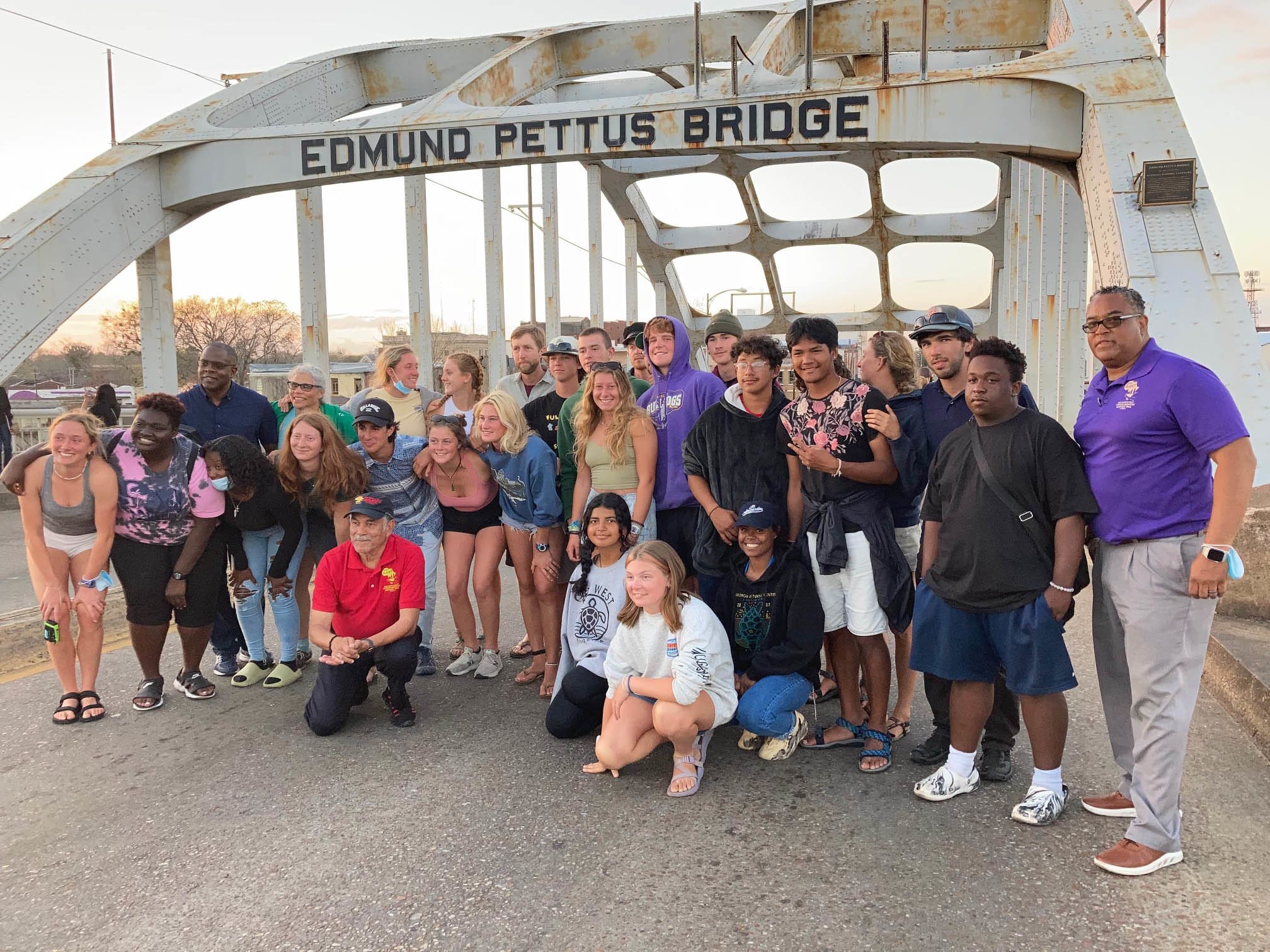
Brooks and I were excited to see all of our mariners back safely on dry land. After an evening’s rest, we would set sail one more day with our guides, who were investigative reporter Ben Raines who found the slave ship the Clotilda, the president of the Clotilda Descendants Association Darron Patterson, representatives from Dora Franklin Finley African-American Heritage Trail Karlos and Eric Finley, and a small gaggle of folks who wanted to be a part of our history. Proctor and MET students were the very first student group to make the journey up the Mobile River to get close to the wreckage remains of the Clotida, which is the last slave ship to make it to the United States in 1860, long after the “official” end of the slave trade in 1808.
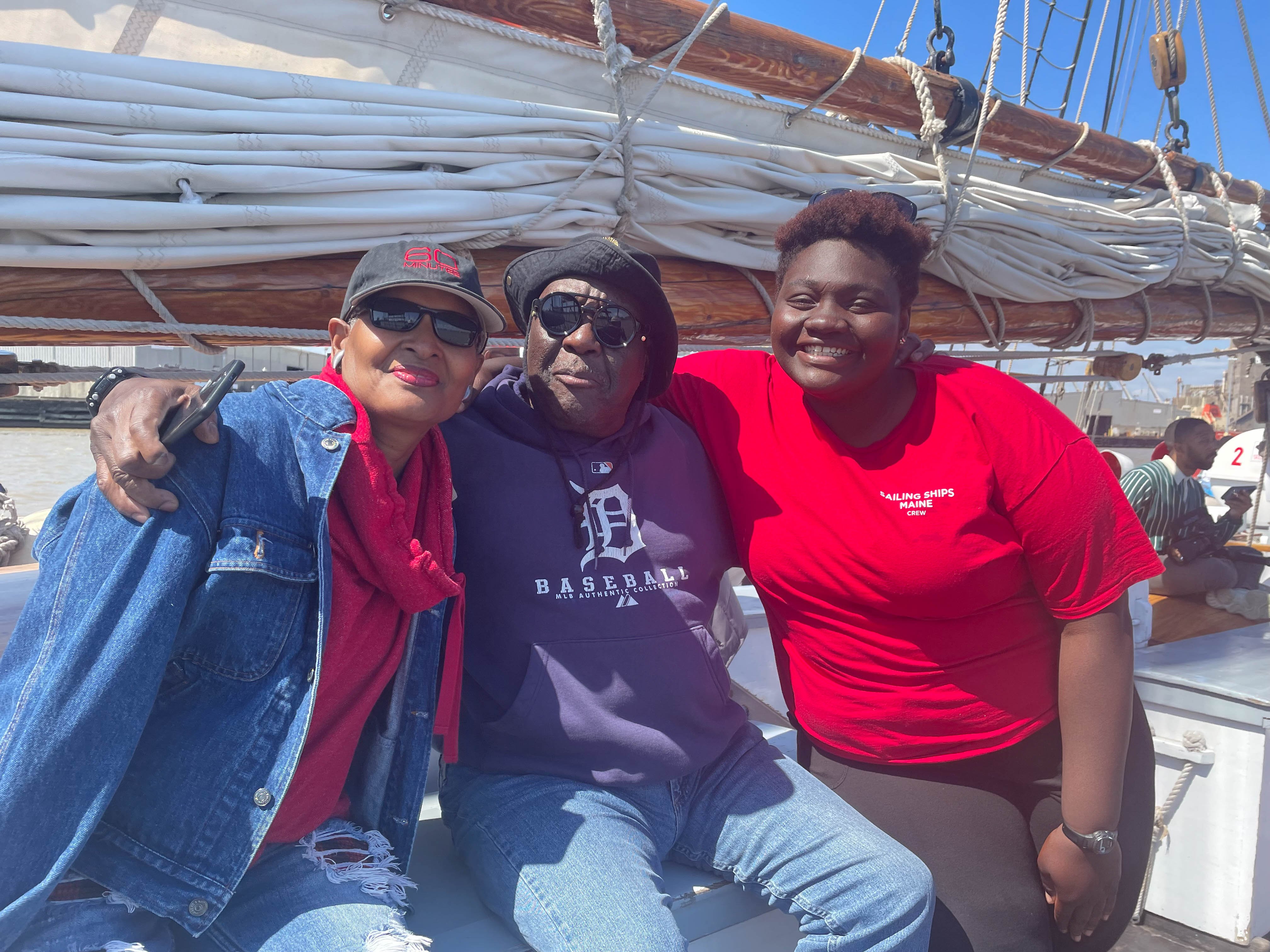
Perhaps the end of this latest edition of Proctor’s Ocean Classroom and the flotsam and jetsam along edge of the Mobile River is a fitting metaphorical ending of slavery in the United States. But even as contemporary signs arguing against the teaching of that would make some students feel uncomfortable while at the same time disputing what is our collective history of slavery in America, the travels of our students stood in sharp contrast to both comfort and knowledge where the wreckage of one of the most brutal periods of human history lay at the bottom of a Southern river, waiting to be re-discovered.
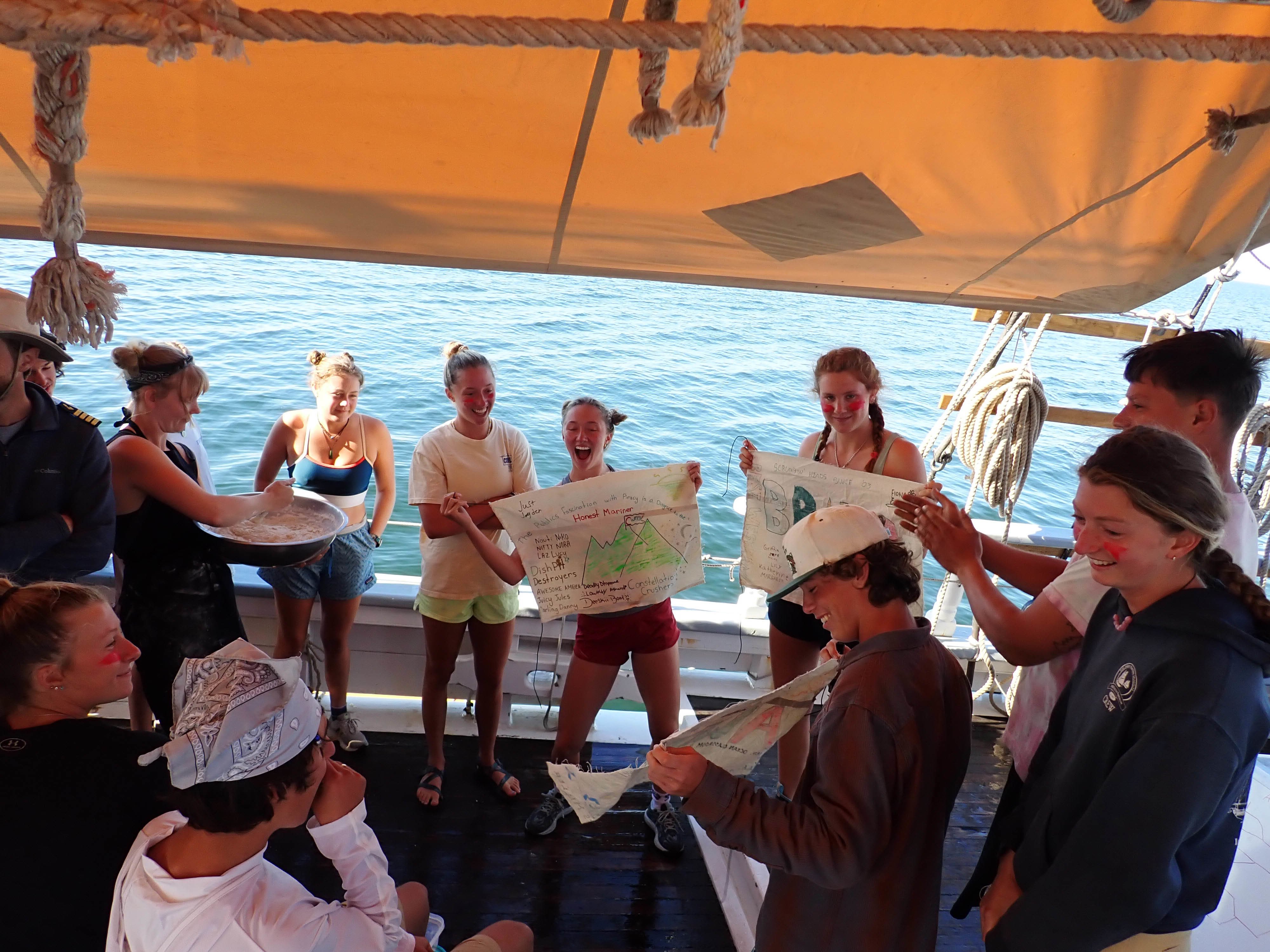
Our students became a part of this history because they signed up for a voyage to study slavery and its aftermath. They courageously left their family and friends in South Carolina to be derailed by a COVID-19 outbreak in Georgia for two weeks, and to end the journey in Alabama with people who are trying to keep the history and the memory of the descendants of that final voyage of the Clotida alive.
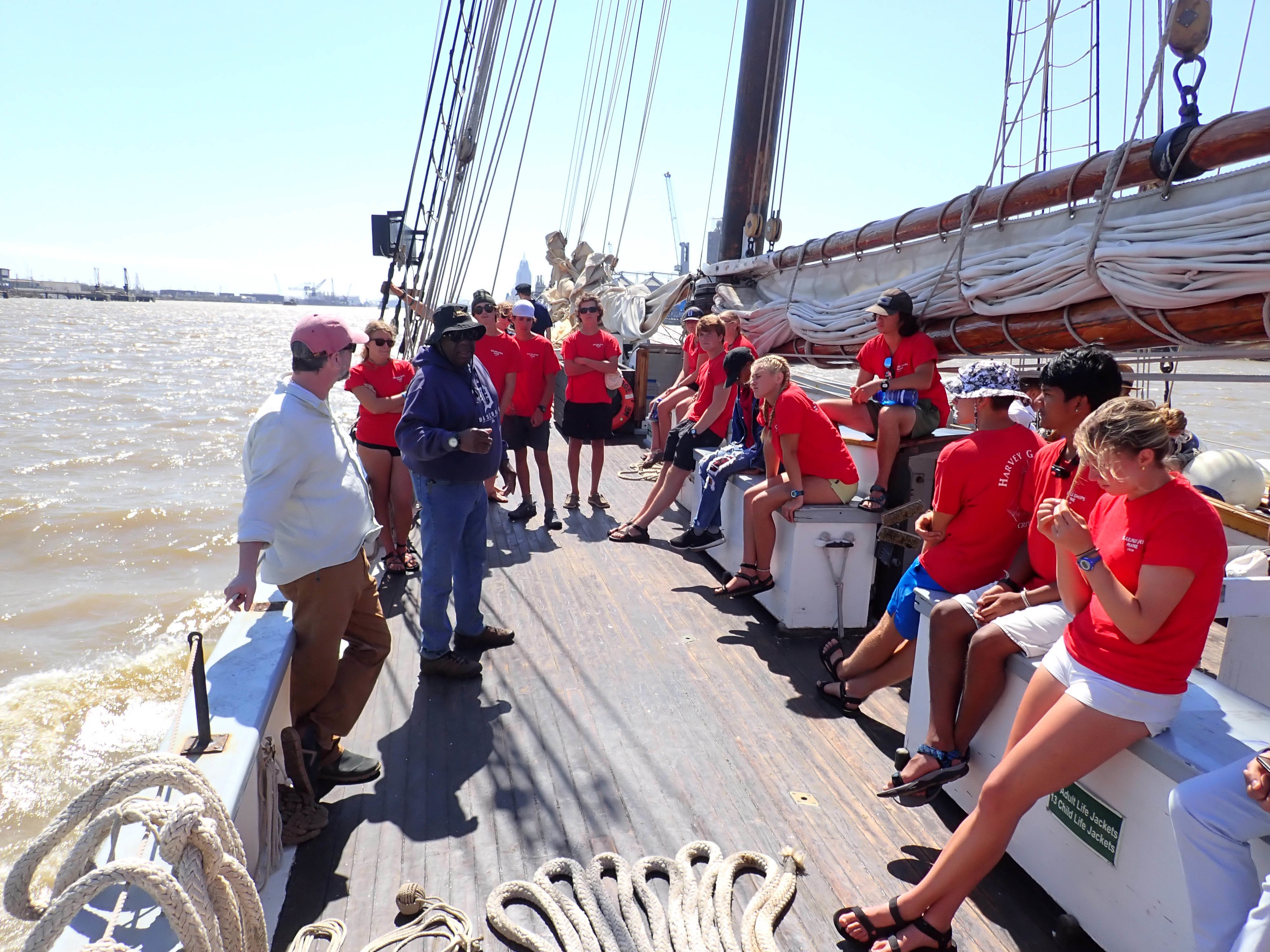
Although the Harvey Gamage could get no closer to the wreckage than 100 yards because of the silty conditions of the Mobile River, our students got a taste for what those newly enslaved people must have seen when they made their way up from the hold of their much smaller vessel into the light of a country that beheld such horrors and the triumphs of the rest of their lives. Like our students, those 1860 survivors would have seen the tip of 12-Mile Island in Mobile Harbor. They would have experienced being ganged together by fate on a boat that was a wonder of its era. They would have wondered aloud about what was in store for them as they made their way to the next part of their journey, which ended and began in South Alabama.
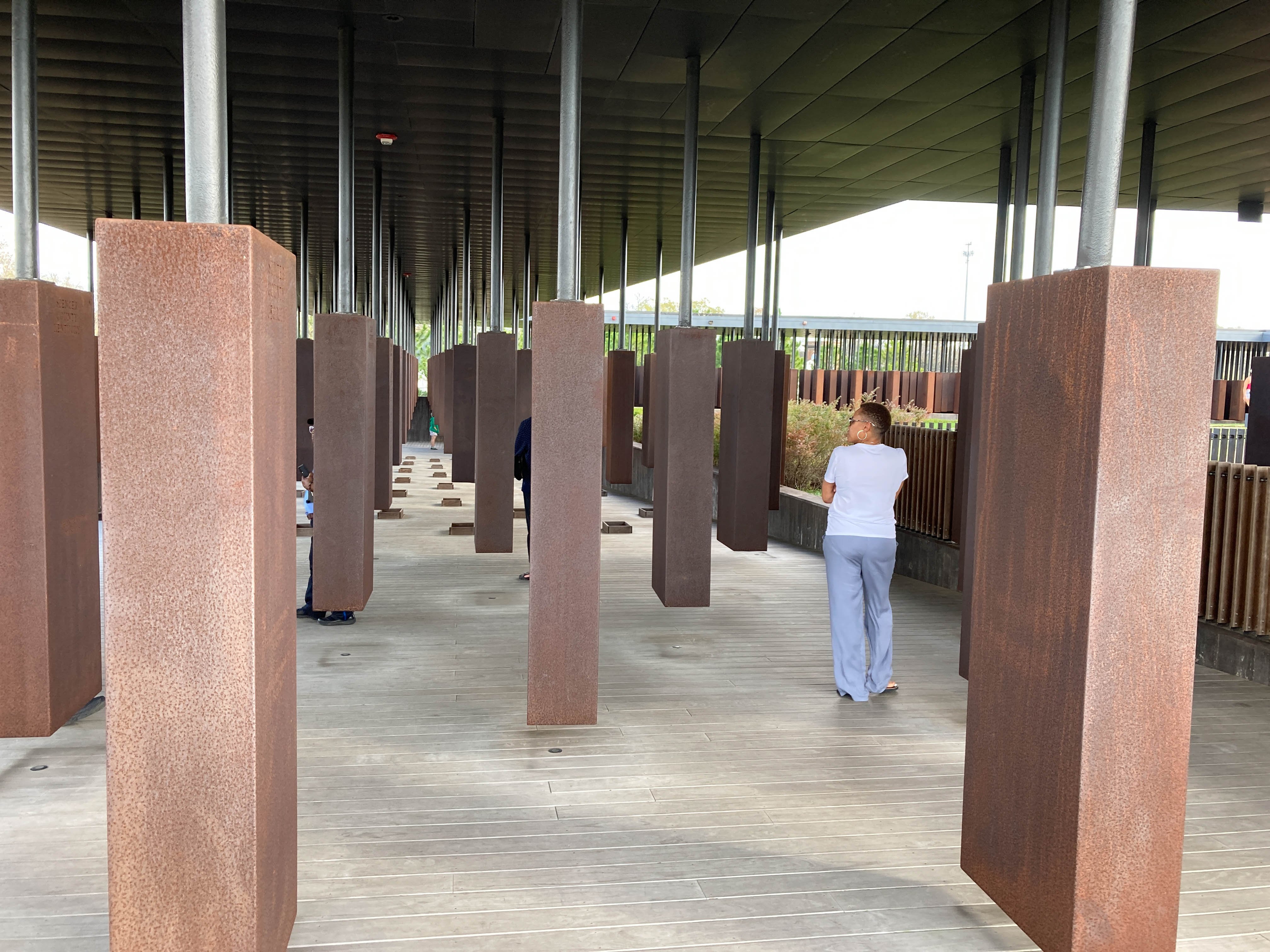
History is always alive. Those enslaved Africans, most of them not much older than our own students, founded a town, Africatown. They wanted to go home back to Western Africa, and requested to do so from the man who paid for their theft, but that request was denied. They worked and bought land and prospered. They made families and made lives for themselves. What is remarkable about their story is that those people survived and thrived and told their stories. One of the descendants – Kazoola or Cudjoe – spoke with Zora Neale Hurston about his time being captured to being the founder of a far off village. Yet, as Darron Patterson and Karlos Finley said, most people thought the story of the Clotilda was only a myth–until evidence to the contrary was discovered.
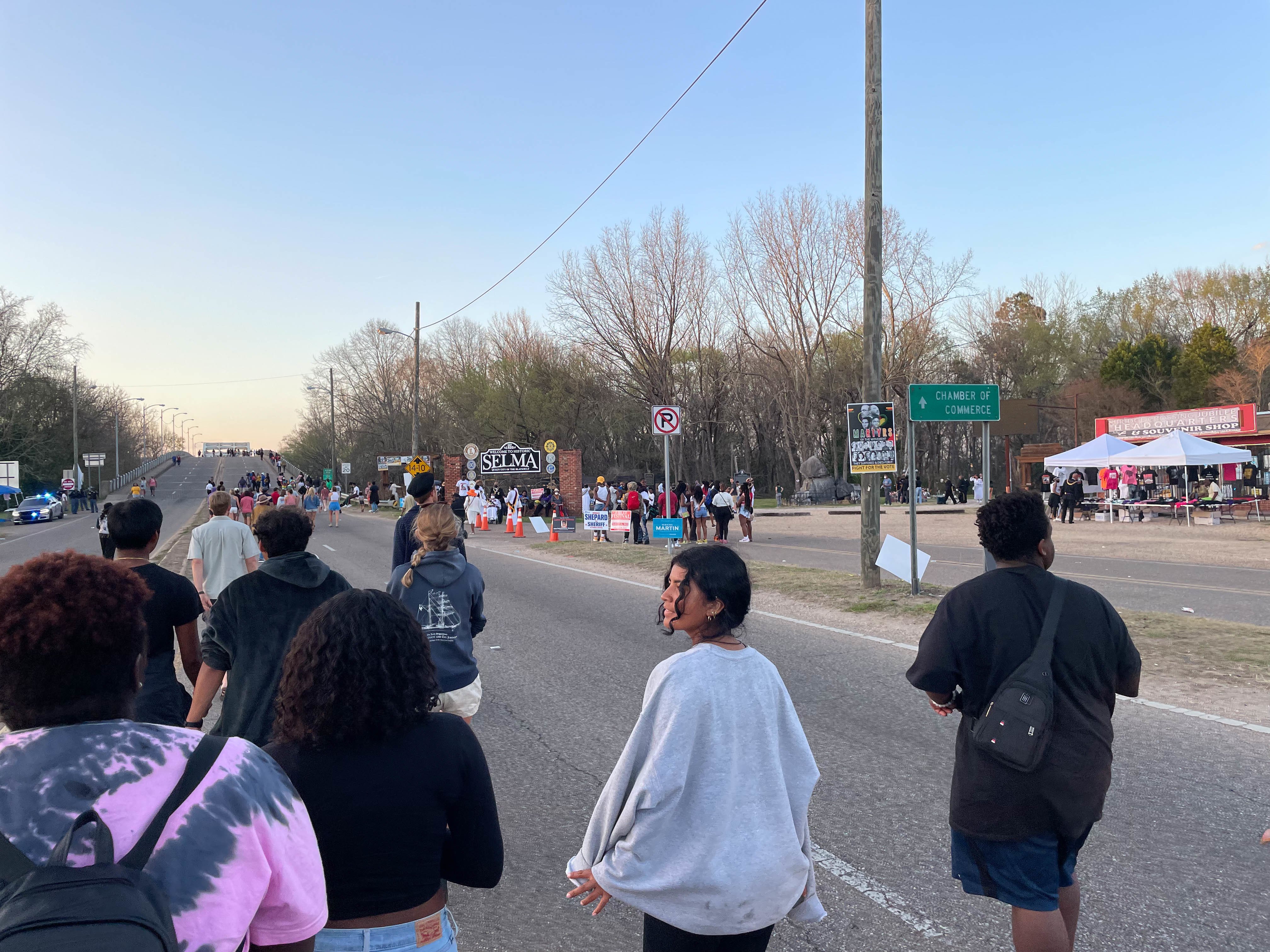
What our students learned and what we saw is that hope floats, if it doesn't sink. Stories are always waiting to be found. Hurston’s book was first published in 2018, just four years ago, because publishers, as well as those more powerful than she–like Richard Wright and others, did not want to hear a book written in the dialect of the time.
What we always must remember is that when we are collecting stories and their meaning, we get more by experiencing and reimagining what was. To hear people and their struggles oftentimes means dealing with the messy truth of how they were challenged. When we first launched Ocean Classroom nearly 30 years ago, I am certain no one knew the extent to which our own students would be explorers and discoverers and co-collaborators in finding more deeply about a teenager's own self. As an experiential program, Ocean Classroom continues to test our students to their limits in an environment that puts them out in the world, in the elements, and with other people.
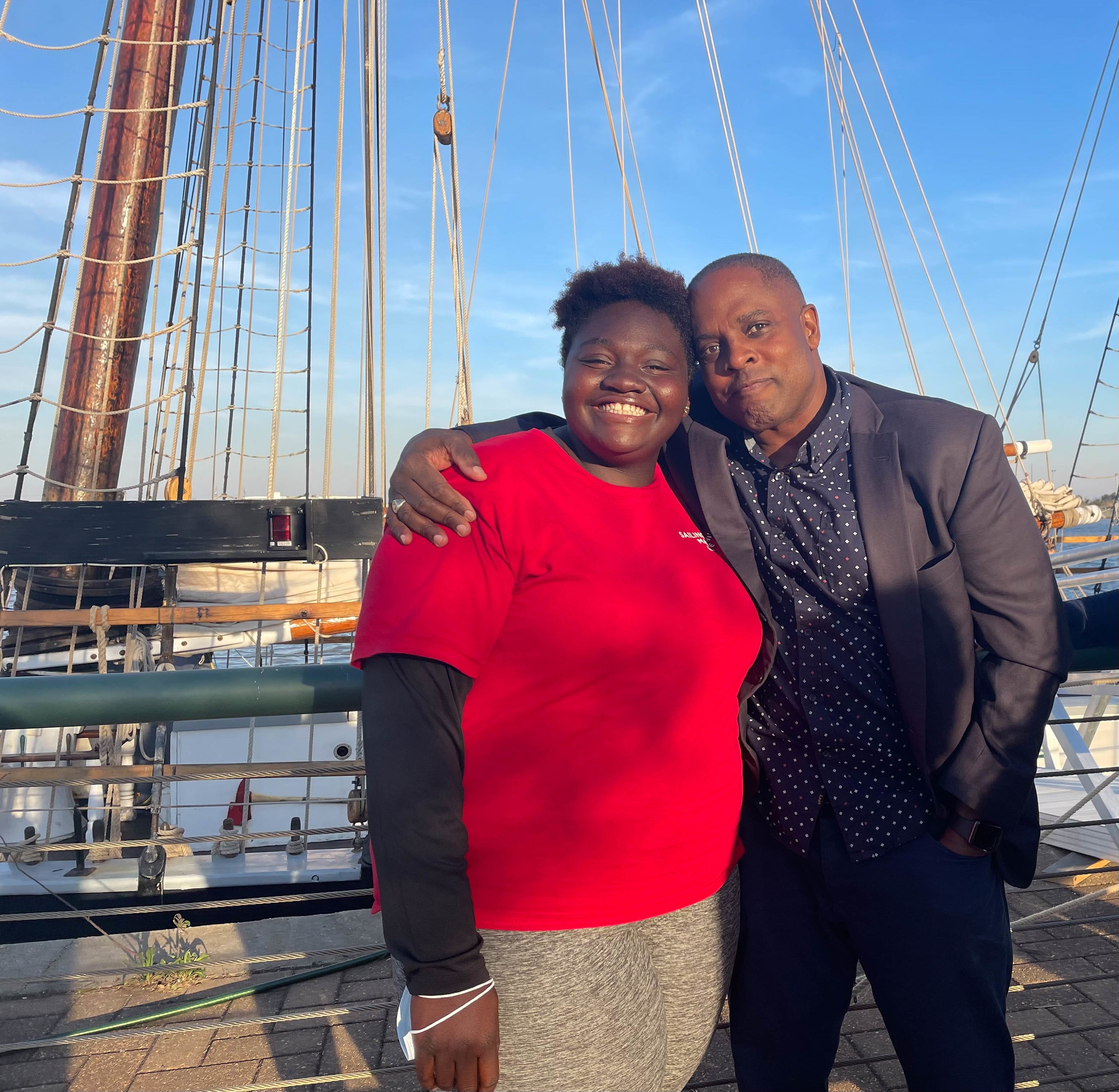
As we docked back next to the Gulf Coast Museum, the Cruise ship was gone. We were told that the boat had been docked there since the pandemic began. In its wake, the detritus that surrounded the boat was gone, too. Although there is hardly ever such a thing as clean slates, we did manage to take a one-of-a-kind voyage in the dead of winter around the Atlantic seaboard and around the peninsula that is Florida to discover that history is never lost, that people can survive even in the harshest of circumstances, and that friendships can bloom in some of the most unlikeliest of waters.
May it always be so.

Brian W. Thomas, Proctor Academy Head of School
Curated Listening:
It is still my favorite of all of Sting’s music. In fact, if I had a baseball walkup song it would be: “History Will Teach Us Nothing.” Listen: Here. Read the lyrics: HERE.







